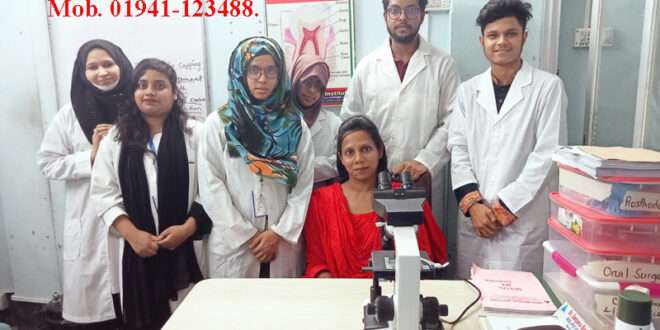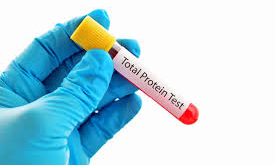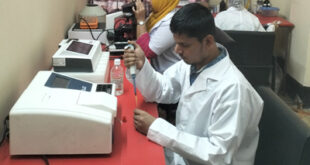Diabetes Mellitus
Diabetes Mellitus is a chronic disorder characterized by high blood sugar levels, also known as hyperglycemia. It occurs when the body either doesn’t produce enough insulin or doesn’t use insulin effectively.
Insulin plays a crucial role in the body’s metabolism of glucose, which is the primary source of energy for cells. When we consume food, especially carbohydrates, it is broken down into glucose and enters the bloodstream. Insulin allows glucose to enter cells, where it is used for energy production or stored for later use.
There are three main types of diabetes: type 1 diabetes, type 2 diabetes, and gestational diabetes.
Type 1 Diabetes: This occurs when the body’s immune system mistakenly attacks and destroys the insulin-producing cells in the pancreas. Insulin is a hormone that helps regulate blood sugar levels. People with type 1 diabetes require lifelong insulin therapy to survive. It typically develops in childhood or adolescence, but it can occur at any age.
Type 2 Diabetes: This is the most common form of diabetes, accounting for the majority of cases. It occurs when the body becomes resistant to the effects of insulin or doesn’t produce enough insulin to maintain normal blood sugar levels. Risk factors for type 2 diabetes include obesity, physical inactivity, family history, age, and certain ethnicities. It can often be managed with a combination of lifestyle changes, such as healthy eating, regular exercise, and medication if necessary.
Gestational Diabetes: This type of diabetes occurs during pregnancy and usually resolves after the baby is born. It happens when hormonal changes during pregnancy affect insulin’s action, leading to high blood sugar levels. Women who develop gestational diabetes have an increased risk of developing type 2 diabetes later in life.
Common symptoms of diabetes include increased thirst and urination, unexplained weight loss, extreme hunger, fatigue, blurred vision, slow wound healing, and frequent infections. However, some people with type 2 diabetes may not experience noticeable symptoms in the early stages.
Complications of diabetes can affect various organs and systems in the body, including the heart, blood vessels, eyes, kidneys, and nerves. These complications can be minimized or prevented through good diabetes management, including blood sugar control, a healthy diet, regular exercise, medication (if required), and regular check-ups with healthcare providers.
Lifestyle Modifications
One of the cornerstones of diabetes management is making healthy lifestyle choices.
1. Diet and Nutrition
Maintaining a balanced diet is crucial for diabetics. Focus on:
a. Carbohydrate Management
Monitor carbohydrate intake to keep blood sugar levels stable. Opt for complex carbohydrates like whole grains, fruits, and vegetables.
b. Portion Control
Controlling portion sizes helps manage calorie intake, aiding in weight management.
2. Regular Exercise
Physical activity enhances insulin sensitivity and helps regulate blood sugar levels. Aim for at least 150 minutes of moderate exercise per week.
Medications of Diabetes Mellitus
In some cases, lifestyle changes alone may not be sufficient, and medication becomes necessary.
1. Oral Medications
Common oral medications include:
a. Metformin
Metformin helps lower blood sugar levels by improving insulin sensitivity and reducing glucose production by the liver.
b. Sulfonylureas
These medications stimulate the pancreas to produce more insulin.
2. Insulin Therapy
For Type 1 diabetics and some Type 2 diabetics, insulin injections or insulin pumps are essential for maintaining optimal blood sugar levels.
Advanced Treatments of Diabetes Mellitus
1. Continuous Glucose Monitoring (CGM)
CGM devices provide real-time blood sugar readings, helping patients make immediate adjustments to their treatment plans.
2. Artificial Pancreas
This cutting-edge technology combines CGM with an insulin pump to automate insulin delivery, making blood sugar management more precise.
Conclusion
Managing diabetes requires a holistic approach that includes lifestyle changes, medications, and, in some cases, advanced treatments. By following a personalized treatment plan and working closely with healthcare professionals, individuals with diabetes can lead fulfilling lives.
FAQs
1. Can diabetes be cured?
No, diabetes cannot be cured, but it can be effectively managed with the right treatments and lifestyle changes.
2. What are the long-term complications of diabetes?
Untreated or poorly managed diabetes can lead to complications such as heart disease, kidney problems, and vision issues.
3. Is it possible to reverse Type 2 diabetes?
In some cases, significant weight loss and lifestyle changes can lead to remission of Type 2 diabetes, but it may return if unhealthy habits are resumed.
4. How often should I check my blood sugar levels?
The frequency of blood sugar monitoring varies from person to person and should be determined by your healthcare provider.
5. Are there any natural remedies for diabetes?
While lifestyle changes like diet and exercise are essential, it’s crucial to consult a healthcare professional for guidance. Natural remedies alone are not a substitute for proper medical treatment.

HRTD Medical Institute, Mirpur 10, Dhaka
 Pathology Training Institute in Bangladesh Best Pathology Training Institute in Bangladesh
Pathology Training Institute in Bangladesh Best Pathology Training Institute in Bangladesh



